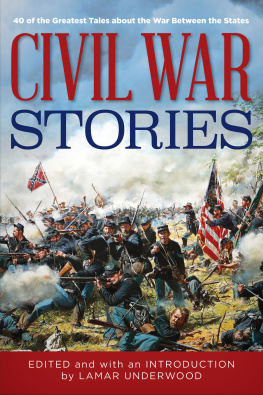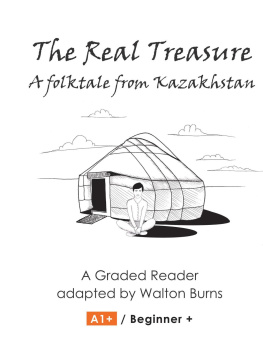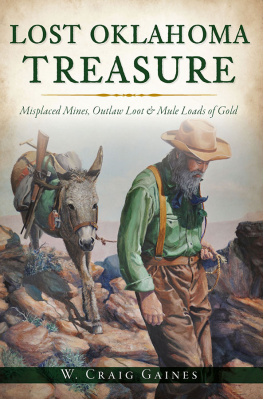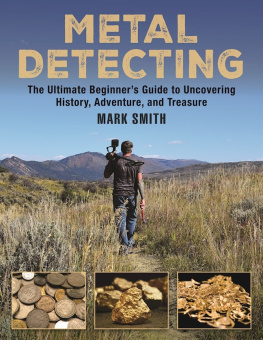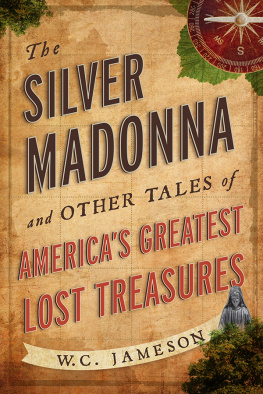All Gold Canyon, by Jack London, from Moon Face and Other Stories, 1906
The Lure of Buried Treasure, by Ralph D. Paine, from The Book of Buried Treasure, 1911
The Spell of the Yukon, by Robert W. Service, from The Spell of the Yukon and Other Verses, 1907
Gold and Grizzlies, by Frona Eunice Wait, from The Stories of El Dorado, 1904
Young Treasure Hunters: Huck Finn and Tom Sawyer, by Mark Twain, from The Adventures of Tom Sawyer, 1876
Bad Start at Dawson, by W. H. P. Jarvis, from The Great Gold Rush, 1913
To Build a Fire, by Jack London, from Lost Face, 1910
Treasure Island, by Robert Lewis Stevenson, from the book Treasure Island, 1883
California Gold Rush, by Captain F. S. Bereton, from In dian and Scout: A Tale of the Great Gold Rush to California, 1905
Striking It Rich, by James Oliver Curwood, from The Gold Hunters, 1909
Storm and Stress, by W. H. P. Jarvis, from The Great Gold Rush, 1913
The Pocket Hunter, by Mary Austin, from The Land of Little Rain, 1901
The North Winds Malice, by Rex Beach, from Laughing Bill Hyde and Other Stories, 1917
Left Out on Lone Star Mountain, by Bret Harte, from Frontier Stories, 1887
The End of the Trail, by Hamlin Garland, from The Trail of the Gold-seekers, 1899
Color!
As the water sloshes over the sand at the bottom of the prospectors pan, the swirling motions reveal a breathtaking sight: color! Theres not muchonly a hint of golden huebut thats enough. This is the place! Here among the lonely mountains and forested slopes, the tiny stream has given up the first hints of treasure.
Now the work begins. In the hours and days ahead, the prospector will learn if this is a true strike, or merely a tease. Packing supplies on his horse, the prospector is prepared to explore the possibilities of this site as long as his enthusiasm holds out. This is the Yukon in 1897 and dreams of treasure have brought many men to these remote hills and streams.
Among all Jack Londons tales of outdoor adventure, All Gold Canyon is one of the two best youll find that make you, the reader, part of the storyalone in the wilds, counting on your experience and skills to strike it rich. The other? Its To Build a Fire, a survival story (see ).
Havent you always wanted to go prospecting? Dip your pan into untouched streams of pure mountain water? No crowds, no pushing.
Well, heres what its like. And even though you dont realize it, theres danger ahead.
It was the green heart of the canyon, where the walls swerved back from the rigid plan and relieved their harshness of line by making a little sheltered nook and filling it to the brim with sweetness and roundness and softness. Here all things rested. Even the narrow stream ceased its turbulent down-rush long enough to form a quiet pool. Knee-deep in the water, with drooping head and half-shut eyes, drowsed a red-coated, many-antlered buck.
On one side, beginning at the very lip of the pool, was a tiny meadow, a cool, resilient surface of green that extended to the base of the frowning wall. Beyond the pool a gentle slope of earth ran up and up to meet the opposing wall. Fine grass covered the slopegrass that was spangled with flowers, with here and there patches of color, orange and purple and golden. Below, the canyon was shut in. There was no view. The walls leaned together abruptly and the canyon ended in a chaos of rocks, moss-covered and hidden by a green screen of vines and creepers and boughs of trees. Up the canyon rose far hills and peaks, the big foothills, pine-covered and remote. And far beyond, like clouds upon the border of the slay, towered minarets of white, where the Sierras eternal snows flashed austerely the blazes of the sun.
There was no dust in the canyon. The leaves and flowers were clean and virginal. The grass was young velvet. Over the pool three cottonwoods sent their scurvy fluffs fluttering down the quiet air. On the slope the blossoms of the wine-wooded manzanita filled the air with springtime odors, while the leaves, wise with experience, were already beginning their vertical twist against the coming aridity of summer. In the open spaces on the slope, beyond the farthest shadow-reach of the manzanita, poised the mariposa lilies, like so many flights of jewelled moths suddenly arrested and on the verge of trembling into flight again. Here and there that woods harlequin, the madrone, permitting itself to be caught in the act of changing its pea-green trunk to madder-red, breathed its fragrance into the air from great clusters of waxen bells. Creamy white were these bells, shaped like lilies-of-the-valley, with the sweetness of perfume that is of the springtime.
There was not a sigh of wind. The air was drowsy with its weight of perfume. It was a sweetness that would have been cloying had the air been heavy and humid. But the air was sharp and thin. It was as starlight transmuted into atmosphere, shot through and warmed by sunshine, and flower-drenched with sweetness.
An occasional butterfly drifted in and out through the patches of light and shade. And from all about rose the low and sleepy hum of mountain beesfeasting Sybarites that jostled one another good-naturedly at the board, nor found time for rough discourtesy. So quietly did the little stream drip and ripple its way through the canyon that it spoke only in faint and occasional gurgles. The voice of the stream was as a drowsy whisper, ever interrupted by dozings and silences, ever lifted again in the awakenings.
The motion of all things was a drifting in the heart of the canyon. Sunshine and butterflies drifted in and out among the trees. The hum of the bees and the whisper of the stream were a drifting of sound. And the drifting sound and drifting color seemed to weave together in the making of a delicate and intangible fabric which was the spirit of the place. It was a spirit of peace that was not of death, but of smooth-pulsing life, of quietude that was not silence, of movement that was not action, of repose that was quick with existence without being violent with struggle and travail. The spirit of the place was the spirit of the peace of the living, somnolent with the easement and content of prosperity, and undisturbed by rumors of far wars.
The red-coated, many-antlered buck acknowledged the lordship of the spirit of the place and dozed knee-deep in the cool, shaded pool. There seemed no flies to vex him and he was languid with rest. Sometimes his ears moved when the stream awoke and whispered; but they moved lazily, with foreknowledge that it was merely the stream grown garrulous at discovery that it had slept.
But there came a time when the bucks ears lifted and tensed with swift eagerness for sound. His head was turned down the canyon. His sensitive, quivering nostrils scented the air. His eyes could not pierce the green screen through which the stream rippled away, but to his ears came the voice of a man. It was a steady, monotonous, singsong voice. Once the buck heard the harsh clash of metal upon rock. At the sound he snorted with a sudden start that jerked him through the air from water to meadow, and his feet sank into the young velvet, while he pricked his ears and again scented the air. Then he stole across the tiny meadow, pausing once and again to listen, and faded away out of the canyon like a wraith, soft-footed and without sound.
The clash of steel-shod soles against the rocks began to be heard, and the mans voice grew louder. It was raised in a sort of chant and became distinct with nearness, so that the words could be heard:
Tun around an tun yo face
Untoe them sweet hills of grace
(D powrs of sin yo am scornin!).






